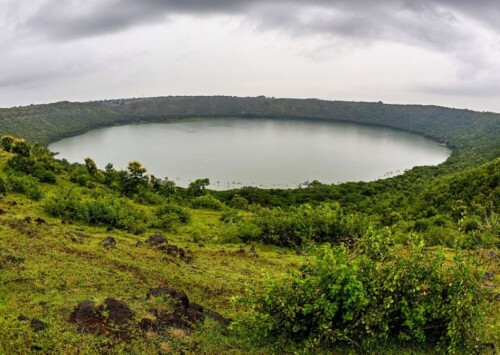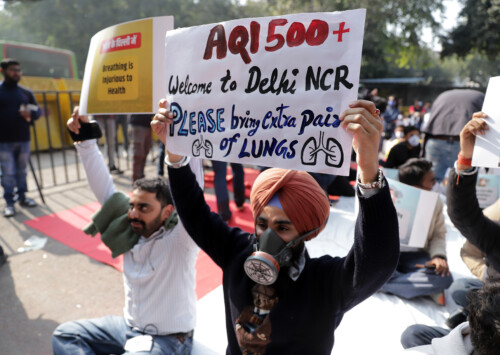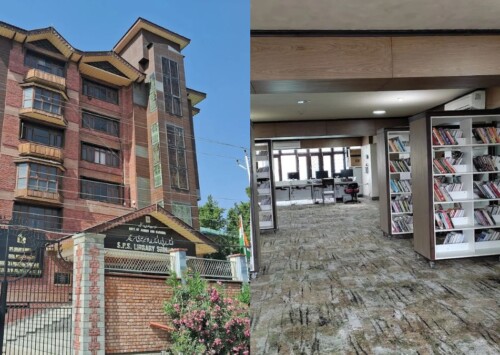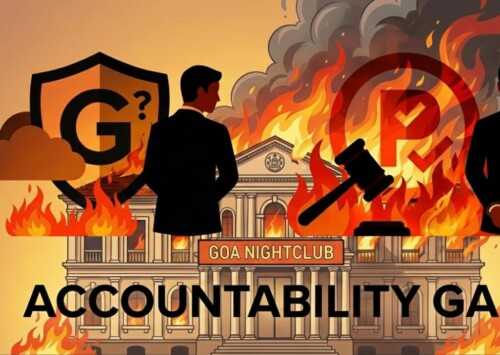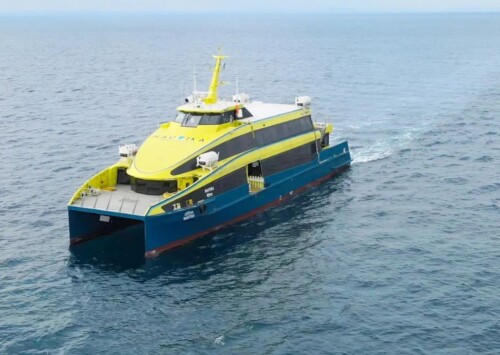World has collectively vetoed sustainability, repeatedly
Global failure to act sentences life on planet to death
Even as there is global condemnation of the veto by the United States against a resolution in the United Nations Security Council calling for immediate ceasefire in Palestine, the global collective inaction on climate change is the world's most devastating veto.
At a meeting of the United Nations Security Council on September 18, a single hand rose against a motion which had the support of all the other members present. With that gesture, a call for a ceasefire, supported by almost every country around the world, is silenced. That image is now seared into our collective consciousness. In a matter of life and death for millions people, the call for peace is vetoed by single hand. We watched and despaired over this act of geopolitical paralysis, that is a blatant failure of humanity and a triumph of narrow political interests of a handful.
As the veto on September 18 was supported by very few in the world, the blame would largely lie on them, but there is another veto which the entire world has delivered, not once or twice, but repeatedly for decades and which has put an existential question over the fate of not a few million people, but all the 7.5 billion or so humans, along with trillions of other inhabitants of the world, on land, in air or underwater.
This veto is not taking place in a high security complex in New York, instead it is getting played repeatedly in our homes, offices, boardrooms, Parliaments and every other place used by humans in their daily life.
While the single veto destroyed the much-needed hopes of a respite for the people of Palestine, the collective veto has sentenced the entire planet to a painful and certain death as we have vetoed any chances of a sustainable future. The climate crisis is not just an environmental issue, it is the ultimate failure of our global conscience, a silent genocide of potentially fair and equal principles cherished in the octogenarian charter of United Nations.
The origin of the veto in the UN was planted in 1945 San Francisco Conference where the five permanent members of the Security Council, namely China, France, Russia (as the successor to the Soviet Union), the United Kingdom, and the United States, insisted on its inclusion as a condition for them to join the new organisation to protect their national interests and prevent being forced to act against them.
This power is codified in Article 27 of the UN Charter. While every aspect of our life on the Earth has changed over last 80 years, Article 27 has remained as stubborn piercing pillar of concentration of power in the hands of few.
A veto by any other name
The UN veto is a privilege of power almost mimicking the dictatorship. Now, apply that logic to Earth’s atmosphere makes our planet liveable.
For over a century, a small group of industrialised nations burned fossil fuels to build their wealth. They consumed the planet’s shared atmospheric space, our most vital common spaces, and left the bill for the rest of the world to pay. This was not just development, it was a multi-generational, centuries-old veto. They vetoed repeatedly, with their emissions, to compromise the stability of the future.
Today, as developing nations seek their path out of poverty, they are told to phase down and then stop using fossil fuel. . The nations that built their empires on coal, oil and gas now veto the development aspirations of others, often without providing the promised financial aid for a NetZero transition to phase out fossil fuel.
We are not facing one veto in a chamber. We are enacting a cascade of daily vetoes, against climate, against equity , against just transition. Every delayed climate policy, every broken funding promise, every diluted international agreement is a veto against the survival of island nations, against the African and Asian farmers facing drought, against our children. We have moved from a world where a few nations hold a veto to one where all nations, united in inaction, wield it.
The paralysis is the point
This brings us to the agonising truth we face on the UN’s 80th anniversary. The UN machine is screeching and powerless. The primary forum for climate action, the UNFCCC ( United Nations Framework Convention on Climate Change), operates on a model of consensus that gives every country a de facto veto. The result? A race to the bottom where urgent, ambitious action is held hostage by the least ambitious, which are also those who are the most invested in the status quo.
The Paris Agreement was a diplomatic miracle, but it was built on promises, not penalties. There is no mechanism to enforce pledges, no consequence for failure. It is a system designed for conversation, not for combat. And we are at war with the consequences of our own inaction.
Yet, for all its flaws, the UN remains our only go-to place as it is the only institution that represents the entire humanity. Other groups are more exclusive, notably the G7 group of rich nations, which is essentially an exclusive club, while private companies lack the drive to do their bit on their own and mandate and bilateral deals are band-aids. The UN, impotent as it may seem, is still the only stage where a global solution can be staged. The problem is not the stage; it is the play we refuse to perform.
Calling a ceasefire in our war on Nature
The war in Gaza demands a ceasefire. So does our war on nature. It demands NetZero. The IPCC (Intergovernmental Panel on Climate Change) has written the resolution for ‘ ceasefire’. This is not a metaphor. We are extracting, polluting, and emitting our way to collective suicide by adding fossil fuel on the wildfire
The theme for the 80th UN General Assembly is “Better Together.” This is the naked, undeniable truth. There are no lifeboats for the rich on a dead planet. We will solve this together, or we will sink together.
It is time to learn from the Security Council’s repeated failures and change the game by implementing a few critical changes.
First, end the tyranny of unanimity and a qualified majority must be able to adopt binding measures for those who agree to them, breaking the petrostate stranglehold. The way the terrorists and drug-traffickers need to be ousted, so also the tyrants benefitting from fossil fuel, profiteers from dirty energy and those delay the justice by denying the finances to developing nations for mitigation, adaptation and skilling for NetZero.
The second action is to get the climate debtors to pay their debts. The historical emitters, the United States, the United Kingdom and the European Union, must finally honour their financial commitments. The earlier USD 100 billion a year has now ballooned to USD 1.3 trillion a year and this is not aid or act of generosity, it is reparation for their past climate vetoes. This is not charity, this is bare minimum of justice.
The third element is for a change of perception. Calling climate change an “environmental issue” is as naïve as calling the genocide as ‘conflict against terrorism’. Climate Crisis is the single greatest threat ever faced by entire humanity. It has led to geo-political wars, poverty, migration, trade imbalances and instability. It should be the only ‘permanent issue’ that should define while shaping the Security Council agenda than the ‘permanent members’ of the Council .
The raised hand of a diplomat is a visible symbol of failure. But the invisible, collective veto that we all are casting through apathy and inaction towards climate crisis is far more deadly.
The 80th anniversary of the UN and the coming 80th UNGA should not be a moment of celebration. It should be the moment for an urgent, surgical intervention.
The question is no longer whether the UN is perfect as it is not. Neither is the question whether it has been successful in last 80 years. It has not. The question is whether it is the only game in the town and there the answer is also a resounding one, yes, it is. We demand that our leaders use this flawed, yet essential tool to finally reform and call a ceasefire on the war against the ecosystem on which we live. We just cannot raise our hands to veto our children’s future and safety of the planet.
That constant climate veto must end. And let us not use Security Council meetings for raising hands veto, the only thing that should be raising is our courage and certainly not the sea level or global warming.
(Rajendra Shende is a former Director UNEP, Founder Director Green TERRE Foundation, coordinating lead author, IPCC that won Nobel peace prize, Prime Mover SCCN, IIT Alumnus. The views expressed here do not necessarily reflect those of Media India Group.)


